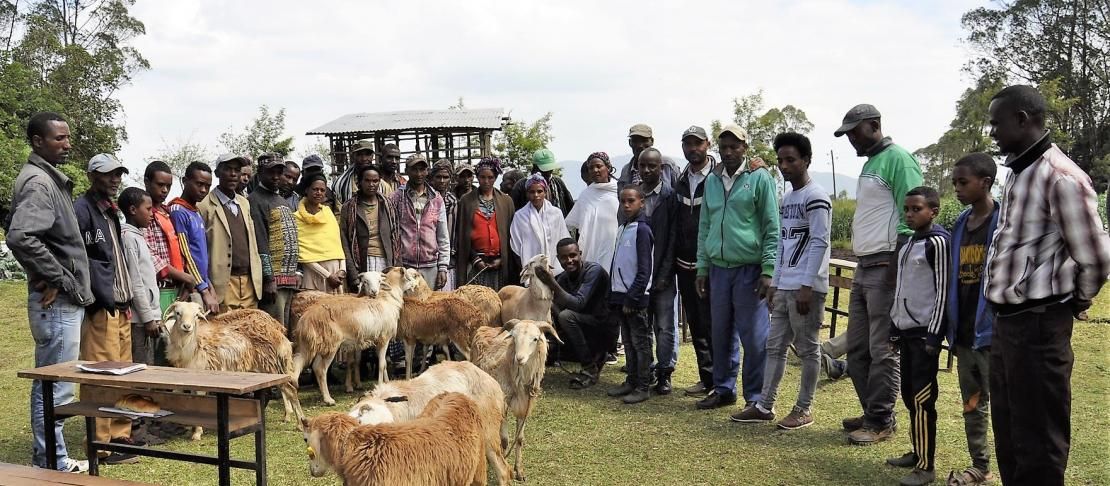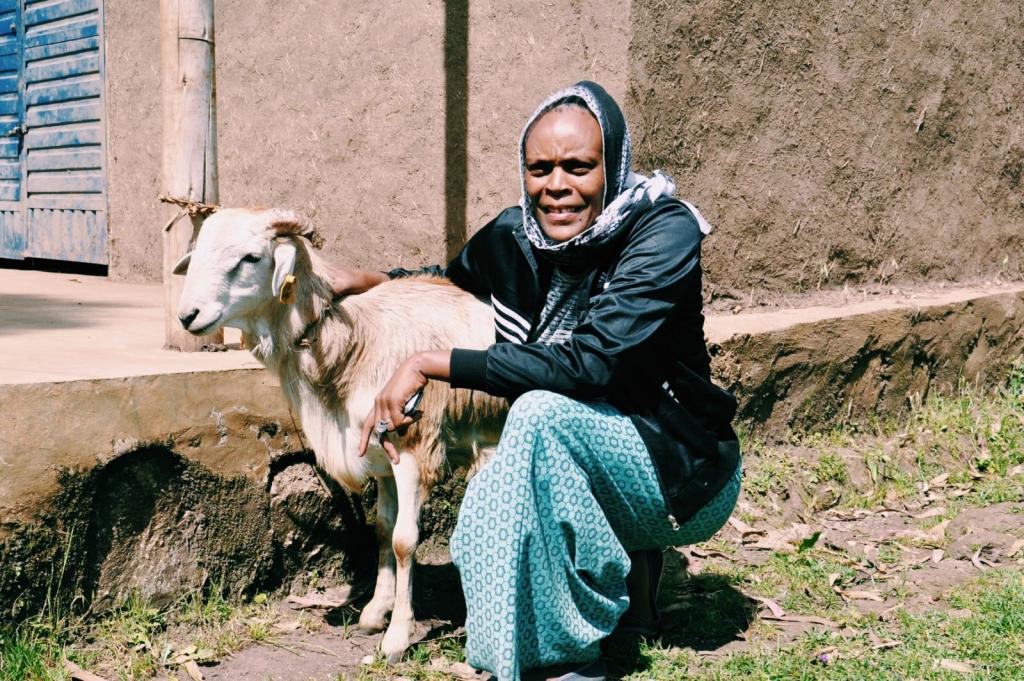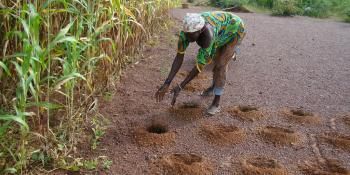Building the capacity of Ethiopian farmers in small ruminant management

Farmer trainings in Southern Ethiopia highlight best practices for improved small ruminant breeding and management.
The CGIAR Research Program on Climate Change, Agriculture and Food Security (CCAFS) is partnering with the International Center for Agricultural Research in the Dry Areas (ICARDA) to upscale community-based small ruminant breeding programs. In Doyogena climate-smart landscape, Southern Ethiopia, demand driven training is undertaken to build the capacity of farmers on improved small ruminant breeding and management.
One such training took place in December 2018 with the collaboration of CCAFS, ICARDA and Areka Agricultural Research Center for two kebeles* in Doyogena. In this CCAFS intervention site, where adaptation practices are piloted to eventually scale for improved food security and resilience, 30% of the members are females. The training brought together champion farmers and focused on improved sheep breeding and management practices, including record keeping, measures for sheep selection, controlled mating and healthcare.
Farmers in Doyogena, Ethiopia climate-smart landscape are learning best practices to improve breeding and management of small ruminants. Photo: G. Ambaw (CCAFS)
Record keeping for breeding management and economic benefits
Record keeping is a useful approach for decision making, keeping track of activities, monitoring productivity and documenting important on-farm events. The farmers were trained on the importance of keeping weight (birth weights, weaning weights and six-months weights), pedigree and animal health records. These records are important for evaluating the economic benefit of the herd, selecting animals for breeding, feed planning and disease management.
Objective measures for sheep selection
To avoid subjective selection of sheep for breeding, farmers were taught various objective measures for selecting animals. These include how to:
- estimate the age of a sheep using its dentition
- use chest girth and body length measurements to estimate the weight of sheep
- select rams for breeding based on the observable characteristics of each animal resulting from the interaction of its genes with the environment
- associate sheep size and age with productivity
Controlled mating for improved survival and growth
The farmers participated in an exercise of mapping the expected rainfall, lambing season and market demand across the year. Farmers were taught how to plan the sheep's mating depending on the seasons. It was emphasized that mating should be planned such that the animals give birth during the rainy season when there is enough pasture for the ewes to produce milk. This will ultimately promote good growth and an improved survival rate among lambs.
Preventing animal disease through healthcare
To ensure the health of small ruminants, farmers were trained on how to identify symptoms of common sheep diseases, such as Ovine pasteurellosis, pneumonia, black leg, foot and mouth disease, mastitis, anthrax, fascioliasis and tapeworm. They were encouraged to use the affordable and legal public veterinary services provided by the Ministry of Agriculture (MoA), Areka Agricultural Research Center and private veterinary services.
It is hoped that the scaling-up process will address climate mitigation through farmer decisions to keep a low number of small ruminants, thereby reducing greenhouse gas (GHG) emissions. “Considering the fodder grasses that are planted on the soil and water conservation structures by farmers, the community will not face feed shortages. The flock size will be linked to the land carrying capacity, creating benefits of reduced GHG emissions,” said Esayas Petros, an officer from Ethiopia’s MoA.
CCAFS will continue partnering with like-minded organizations to support and promote evidence-based solutions for climate adaptation and mitigation.
Read more:
- News update: Scaling community-based sheep breeding for genetic improvement in Ethiopia
- News update: Selective breeding manuals reveal best practices for livestock productivity
*A kebele is the smallest administrative division in Ethiopia.
John Recha is Participatory Action Research Specialist for CCAFS East Africa. Gebermedihin Ambaw is Research Associate for CCAFS East Africa. Tesfaye Getachew is Project Coordinator for Small Ruminant Research at ICARDA. Aynalem Haile is Small Ruminant Senior Scientist - Breeding and Genetics at ICARDA. Addisu Jimma is Livestock Research Coordinator at Areka Agricultural Research Center.




